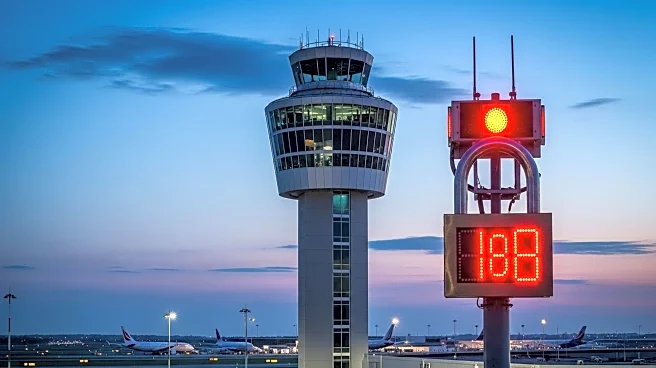What is the story about?
What's Happening?
A cyberattack targeting the MUSE software used for check-in and boarding systems has disrupted operations at several major European airports, including London's Heathrow, Brussels, and Berlin. The attack led to flight delays and cancellations, affecting electronic customer check-in and baggage drop processes. Collins Aerospace, the software provider, acknowledged the disruption and is working to resolve the issue. The incident is part of a broader trend of cyberattacks impacting various sectors globally, including healthcare and automotive industries.
Why It's Important?
The cyberattack underscores the vulnerability of critical infrastructure to digital threats, highlighting the fragile and interdependent nature of the systems underpinning air travel. Such disruptions can have significant economic impacts, affecting airlines, passengers, and airport operations. The incident raises concerns about cybersecurity measures in place to protect against ransomware and digital sabotage, which can paralyze networks and demand ransom payments. The ongoing investigation into the attack's origin is crucial for preventing future incidents and ensuring the security of air travel systems.
What's Next?
Airports affected by the cyberattack are advising passengers to confirm their travel plans with airlines before heading to the airport. Brussels Airport has requested airlines to cancel half of their scheduled departing flights on Sunday to manage queues and avoid further cancellations. Cyber defense authorities in the UK and Germany are in contact with their respective airports to address the situation. The resolution of the disruption and identification of the attackers will be key steps in restoring normal operations and enhancing cybersecurity protocols.















